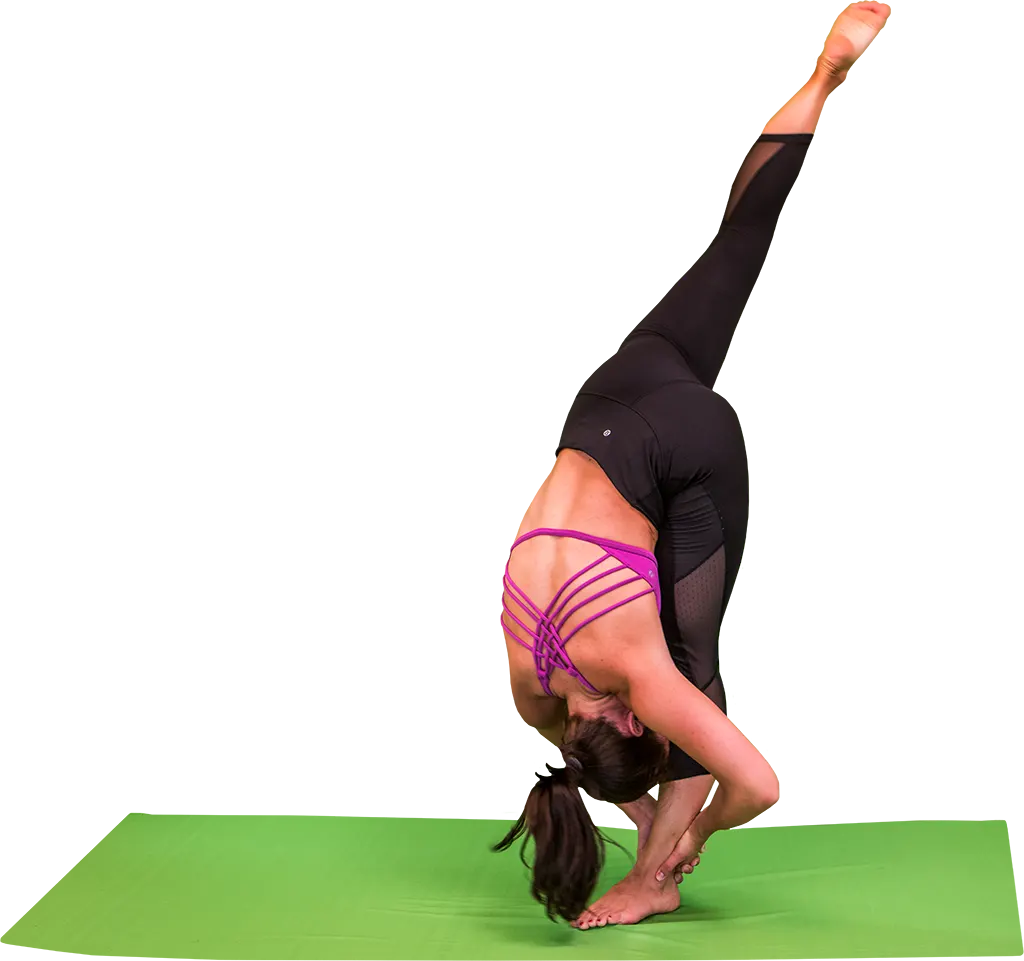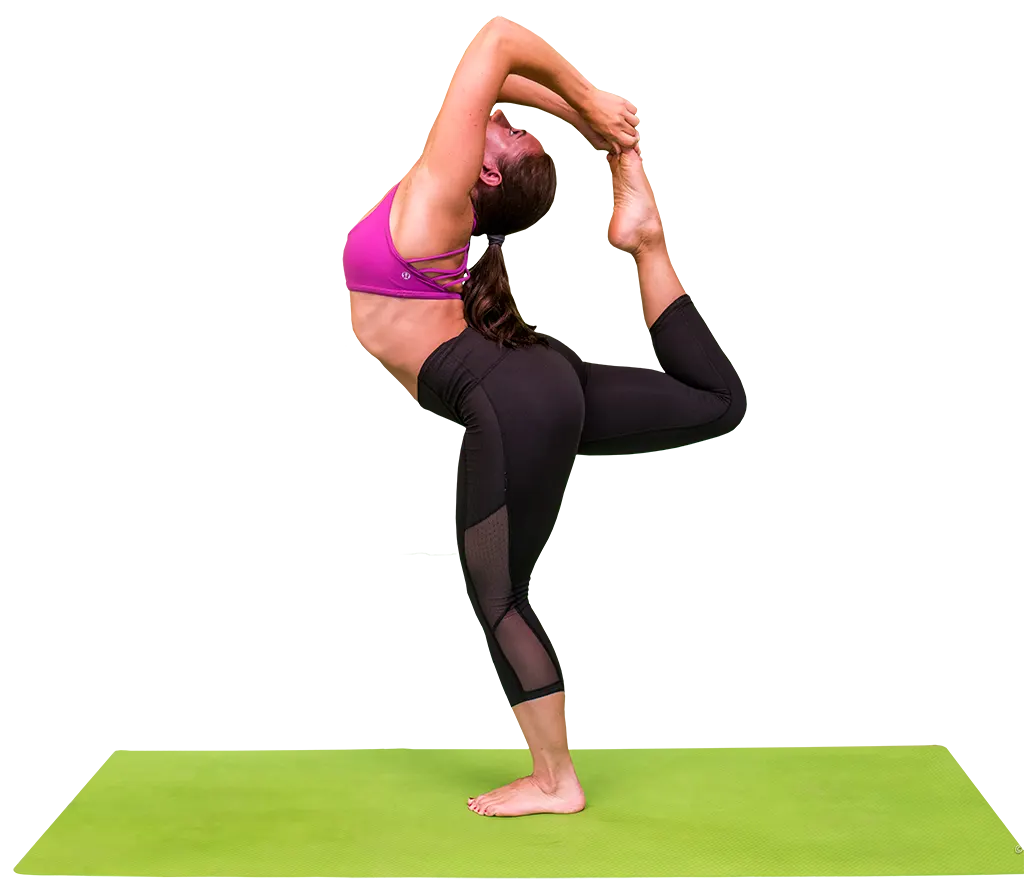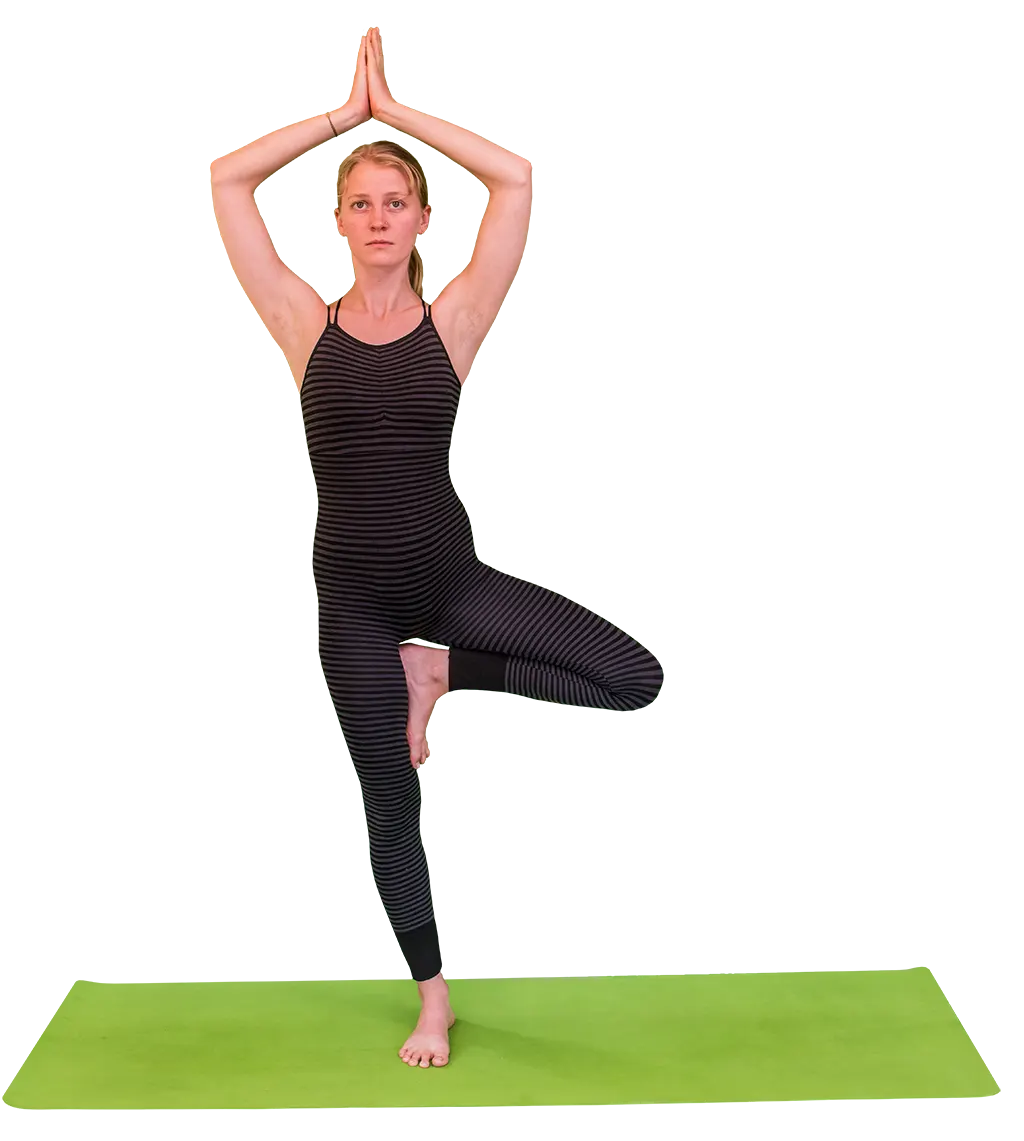Table of content
Preparation
Stand upright with legs together, relaxed shoulders, arms at your sides. Inhale, exhale, and relax.
Getting into position
Come into Virabhadrasana-III (Warrior-III Pose) with torso bent farther toward the floor, and palms facing down, on the floor. Hold for a few moments to allow the body to adjust. Inhale. Exhaling, raise the right leg until it is in-line with the left leg. Grab the ankle with both hands and bring the chin close to the shin. Hold for a few moments to allow the body to adjust. Inhale. Exhaling, straighten farther. Hold with normal breathing for as long as comfortable.
Coming out of position
Slightly relax the body. Inhale. Exhaling, slowly lower your right leg parallel to the floor while raising your arms and torso back up into Virabhadrasana III, and come back into the starting position. Inhale, exhale, and relax. Repeat on the other side.



